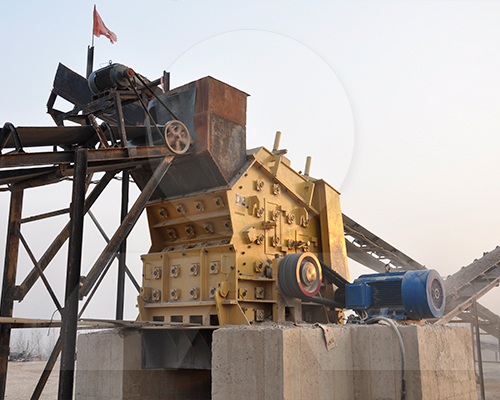Utilization of Impact Crushers for Processing Limestone, Cement, and Gypsum
Impact crushers have become an essential piece of equipment in various industries due to their ability to efficiently process materials such as limestone, cement, and gypsum. These materials are crucial for numerous construction and manufacturing processes, and the role of impact crushers in their preparation cannot be overstated. This article delves into the specific applications, advantages, and impact of using impact crushers in the processing of limestone, cement, and gypsum.
Introduction to Impact Crushers
Impact crushers work by using the principle of rapid impacts to crush materials. They consist of a rotor that spins rapidly, with hammers or blow bars attached, which strike the material and break it down into smaller pieces. This method of crushing is particularly effective for brittle materials, making impact crushers ideal for processing limestone, cement, and gypsum.

Key Features of Impact Crushers
- High Crushing Efficiency: Impact crushers are known for their high efficiency in crushing materials. The rapid impact action ensures that materials like limestone and gypsum are broken down quickly and effectively, resulting in high productivity.
- Versatility: These crushers are highly versatile and can handle a variety of materials. This makes them suitable for different stages of production in the cement industry, from raw material processing to the final product.
- Adjustable Output Size: Impact crushers allow operators to adjust the size of the output material. This flexibility is crucial in producing the desired size of limestone, cement, and gypsum required for different applications.
- Durability and Reliability: Built with high-quality materials and advanced technology, impact crushers are durable and reliable. They can withstand the demanding conditions of industrial operations, ensuring long-term performance with minimal downtime.
- Energy Efficiency: Modern impact crushers are designed to be energy-efficient. They consume less power while delivering high performance, which translates to lower operational costs and a reduced environmental footprint.
Economic and Environmental Impact
The use of impact crushers in processing limestone, cement, and gypsum has significant economic benefits. The high crushing efficiency and productivity lead to cost savings in terms of energy consumption and labor. Additionally, the ability to produce materials of consistent quality helps improve the overall efficiency of construction and manufacturing processes.
From an environmental perspective, impact crushers contribute to sustainability. Their energy-efficient design reduces greenhouse gas emissions, and their ability to produce precise material sizes minimizes waste. Furthermore, by enabling the recycling of construction waste, impact crushers support more sustainable construction practices.
Applications in Limestone, Cement, and Gypsum Processing
- Limestone: Limestone is a key raw material in the production of cement and various building materials. Impact crushers effectively reduce the size of limestone, making it suitable for further processing in cement kilns and other applications.
- Cement: In cement manufacturing, impact crushers are used to process raw materials and clinker. They play a critical role in ensuring that the final product meets the required specifications for strength and durability.
- Gypsum: Gypsum is essential for the production of plaster and drywall. Impact crushers are used to crush gypsum into a fine powder, which is then used in various construction materials and applications.
Conclusion
Impact crushers are indispensable in the processing of limestone, cement, and gypsum. Their high efficiency, versatility, and energy-saving features make them ideal for modern industrial applications. By enhancing productivity and ensuring consistent quality, impact crushers contribute significantly to the economic and environmental sustainability of construction and manufacturing industries. As the demand for these materials continues to grow, the role of impact crushers in their processing will become even more crucial, supporting the development of more efficient and sustainable production practices.
- > Basalt Rock Crushers in New Zealand: A Vital Tool for Construction and Mining
- > How Effective Are Mobile Impact Crushers for Crushing Concrete Blocks?
- > Application of Mobile Jaw Crusher in Urban Demolition
- > The Unmatched Convenience of Mobile Jaw Crushers for Mountain Road Construction
- > The Growing Use of Mobile Crushers in Africa
- > Impact Crusher for Granite Processing
- > Utilization of Iron Ore in Construction Materials and the Role of the PE600x900 Jaw Crusher
- > Recommended Models of Mobile Crushers for Construction Waste Recycling
Hot Product


Online




Message
